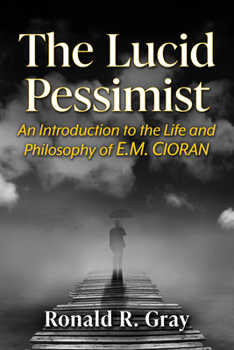The Lucid Pessimist: An Introduction to the Life and Philosophy of E.M. Cioran
The works of Romanian-born French philosopher and essayist Emil Mihai Cioran (1911-1995) have been translated into Galician, German, Italian, Japanese, Korean, Polish, Portuguese, Romanian, Spanish, Swedish, and Turkish. Yet, in the Anglo-American world, Cioran is rarely taught at the postsecondary education level or mentioned in standard surveys of philosophy.
This work discusses the controversial and overlooked thought and life of Cioran, arguing for his significance as a thought-provoking moral philosopher, superb aphorist, and witty and elegant stylist of the French language. It also comprehensively situates Cioran vis-a-vis the Western philosophical tradition; examines his deeply pessimistic views on fanaticism, history, utopia, suicide, the "initial stain," saints, and philosophy; and analyzes his relationship to existentialism and Asian thought.
Related Subjects
Philosophy




